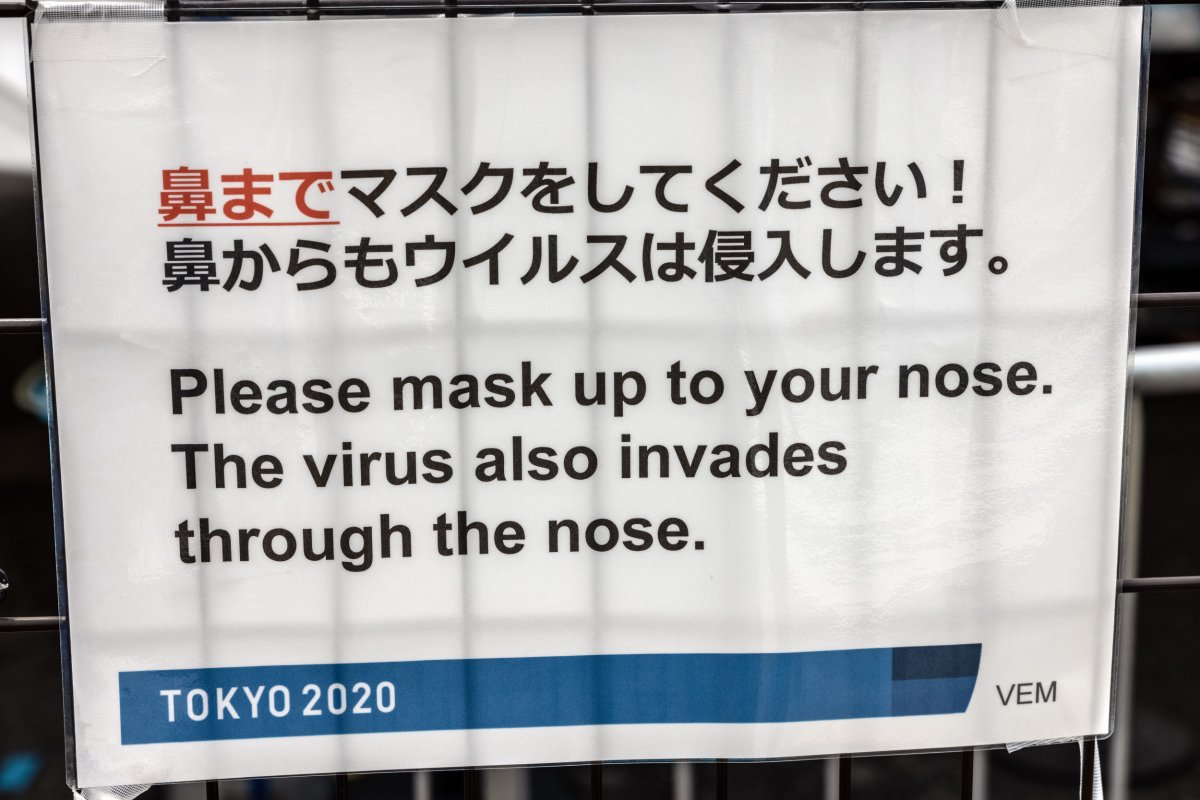A new kind of face mask is emerging in South Korea, and it has spurred questions as to how useful it actually is to fight the spread of COVID-19.
The mask, which has been seen on Twitter, covers just the nose and was created as a tool to make eating and drinking in public safer. Some masks are sold as just the nose piece, designed to be worn underneath a regular mask, while others come with a detachable piece of cloth that can cover the mouth as well and can be taken off when eating.
진짜로 나와버린 코스크 pic.twitter.com/p58WrYGFLe
— 무슨 일이 일어나고 있나요? (@museun_happen) January 29, 2022
The mask had been dubbed a "kosk," a combination of the word ko—the Korean word for nose—and mask. The new masks were released by a company called Atman and are currently being sold for 9,800 won, or $8.13.
The masks have drawn attention online, as users on Twitter have commented that the idea of a "nose mask" seems "silly".
"Covering just the nose will make no difference to catching anything," said one Twitter user. Another said, "This nose mask isn't necessary."
Dr. Stuart Ray, a professor of medicine at Johns Hopkins University, told Newsweek that he was doubtful a mask like this would protect the wearer from COVID-19.
"I would like for this to work because I sorely miss varied dining experiences, but I seriously doubt that a mask covering only the nose would [make] dining safe in the context of high COVID-19 transmission rates," Ray said. "Without compelling evidence, I am not confident it would reduce risk much at all, unless people were carefully trained and monitored to breathe nasally while eating – which seems both unlikely and unsustainable."
Ray added that there is evidence to suggest that "virus-containing aerosols would be able to travel via air whether traveling through nasal or oral passages."
Professor Catherine Bennett, chair in Epidemiology at Deakin University's Institute for Health Transformation, told Australia's Nine News that the idea was strange, but altogether not a terrible idea.
"It probably makes a marginal difference," Bennett said, and shared that she felt it would be most likely be "better than nothing."
There would be other factors to consider, however. People eating and talking would be breathing through their mouths instead of their noses anyway, said Bennett. People might also be less likely to cover their mouths back up after they were finished.
Nose masks aren't just a way for people to get around wearing a full mask though, as some studies have suggested that viruses often use nasal passages as the easiest route into the body.
Dr. Richard Boucher, a professor of medicine at the University of North Carolina School of Medicine and co-author of a study of how COVID spreads through the nasal passages and the respiratory tract, suggested that any masks, sprays, or therapeutic strategies to help protect the nose were beneficial in warding off COVID-19.
"If the nose is the dominant initial site from which lung infections are seeded, then the widespread use of masks to protect the nasal passages, as well as any therapeutic strategies that reduce virus in the nose, such as nasal irrigation or antiviral nasal sprays, could be beneficial," said Boucher.
In the last two weeks, South Korea has recorded a total of 194,711 COVID-19 cases and recorded a record of 22,907 on Thursday alone, after first hitting 20,000 cases in one day on Wednesday.
Update 2/3/22 2:26 PM ET - This story has been updated with a comment from Dr. Stuart Ray of Johns Hopkins University.

Uncommon Knowledge
Newsweek is committed to challenging conventional wisdom and finding connections in the search for common ground.
Newsweek is committed to challenging conventional wisdom and finding connections in the search for common ground.
About the writer
Emma Mayer is a Newsweek Culture Writer based in Wyoming. Her focus is reporting on celebrities, books, movies, and music. ... Read more
To read how Newsweek uses AI as a newsroom tool, Click here.








